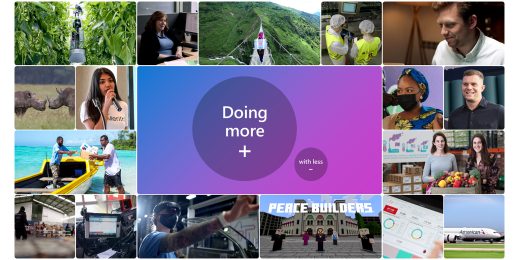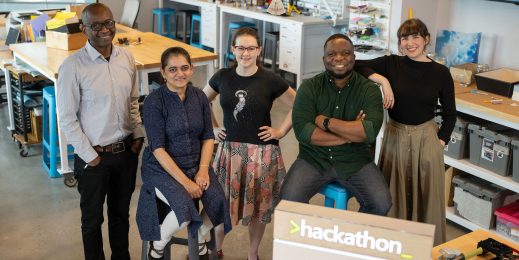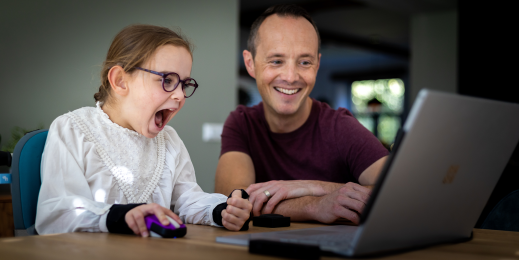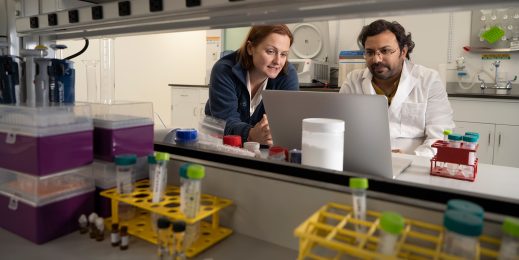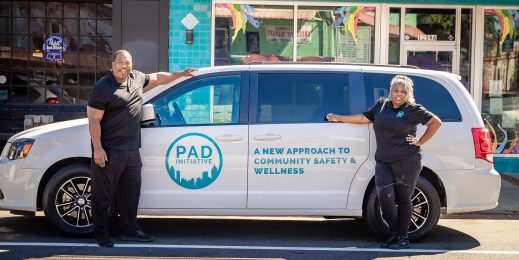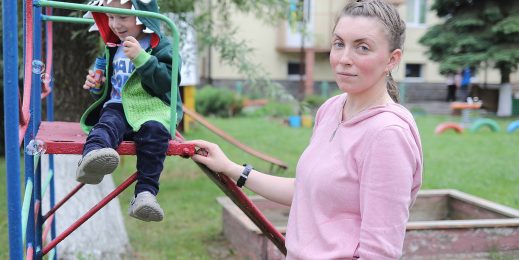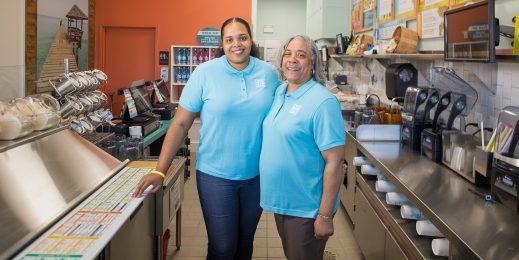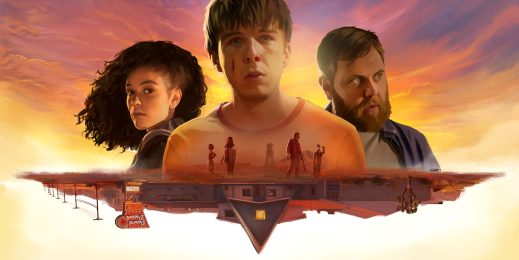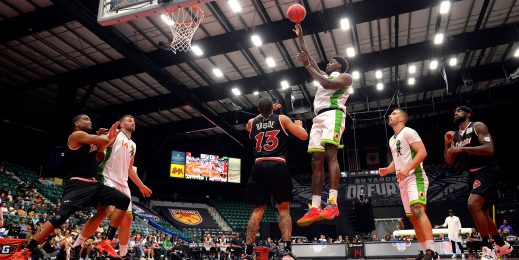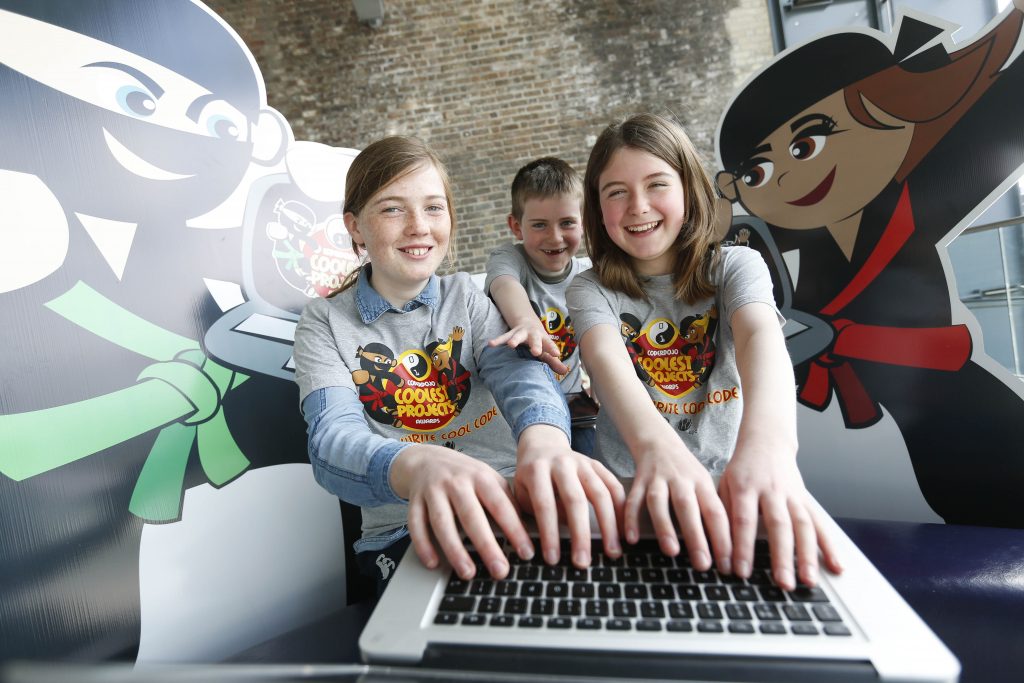
Microsoft partners tap into potential of young people through computer science education
Meet Reina Torrejón. Born and raised in Lima, Peru, Torrejón has always dreamed of pursuing a career in technology and making a sizeable impact for her community and the world. In a city of nearly 10 million people, where roughly a third live in extreme poverty, her goal was to launch a health technology startup. But when the cost of five years in university proved too difficult to swallow, she took a different job teaching instead. Then Torrejón discovered she could attain her goal in five months, instead of five years.
“My family were all the time saying ‘You should be studying. You should have a career,’” says Torrejón. “But when I told them about this five-month program, they said ‘What are you going to do in five months?’”
Torrejón’s pathway to a more promising career in tech started in Laboratoria, a web development academy for low income young women and newly awarded YouthSpark grant recipient from Microsoft Philanthropies.
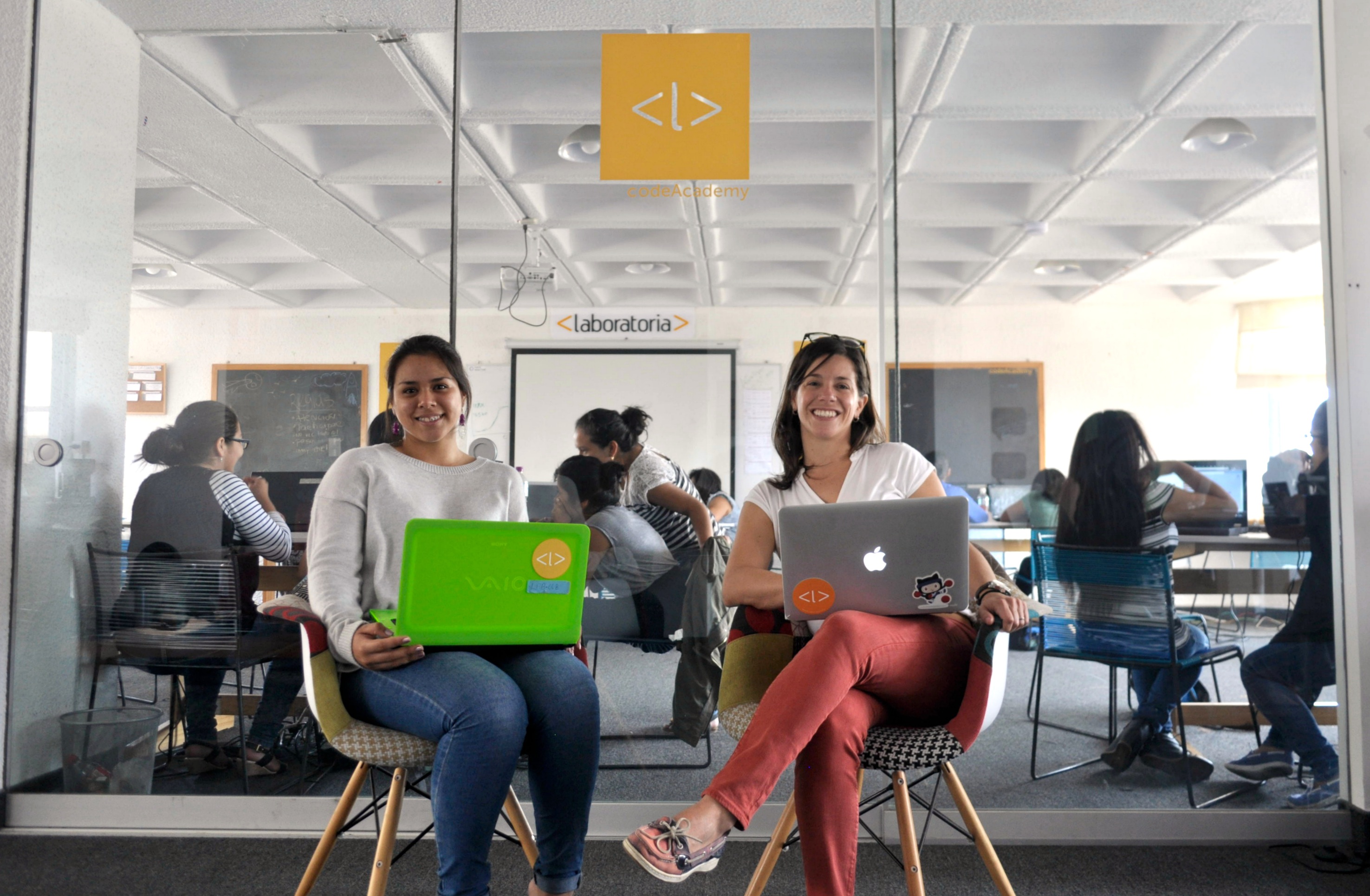
Laboratoria is just one of more than 100 grant recipients that Microsoft announced today. Microsoft partnered with these organizations and provided funds that are focused on improving access to computer science education — with a special emphasis on girls, people from racial and ethnic minority backgrounds, and low-income communities. These partnerships — some new and some existing — grew deeper after the company’s $75 million YouthSpark investment, announced in September 2015, to increase access to computer science education for all youth around the world.
“Partnerships with organizations that have the same mission we do are how we can add the most value, so we looked for organizations — like Laboratoria, CoderDojo and City Year — that know how to work well with kids, have a background in technology skills training, and understand the importance of computer science in preparing young people for a whole range of careers,” says Microsoft Philanthropies Director Yvonne Thomas.
Thomas is very clear in stating that computer science isn’t just about coding. Rather, it’s about teaching the principles of computational thinking, such as how to break apart a problem into multiple bite-size pieces the way a computer would, to prioritize and solve each of those pieces, and then assemble them back together to solve the larger problem.
And these skills are critical to the success of young people in all fields, regardless of their career path.
This view is shared by Ana Maria Martinez, regional partner for Laboratoria, which has four offices in Latin America, a region where 22 million young people are unemployed or not in school. Because 70 percent of those young people are female, Laboratoria strives to help women such as Torrejón, who are in the 18 to 29 years age group, tap their potential by providing them with training in front-end web development and helping them land jobs in the digital sector.
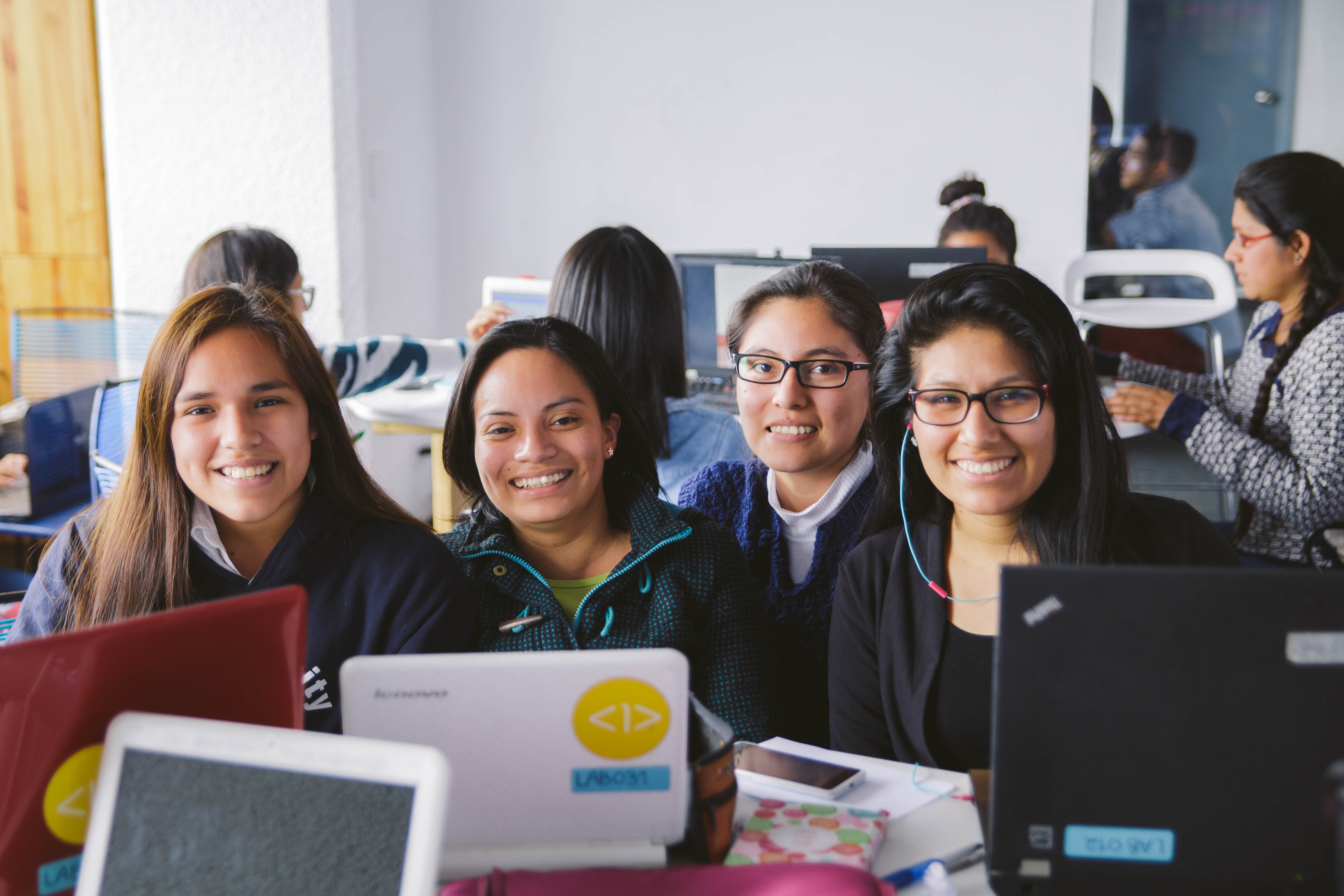
“I do nothing if I just give out a diploma. We are successful when we connect young women with a company, when they hire her and are satisfied with her performance,” says Martinez.
These jobs have the potential to triple the income of someone in an economic situation similar to Torrejón. A rigorous screening process and training program have helped Laboratoria develop a network of more than 300 businesses that actively recruit from its graduates in Mexico City, Santiago, Lima and Arequipa, Peru’s second largest city.
Half a world away in Dublin, Ireland, 13-year-old Niamh Scanlon just started her secondary education but has already built a technology resume that would be the envy of many university graduates. Her “career” launched from a conversation with the president of Dublin City University when Niamh was just nine years old.
At the time, the extent of Niamh’s technology exposure was the occasional use of apps and games online. She divided the rest of her time between the usual pursuits of someone her age: swimming, reading, spending time with friends and playing in the local Gaelic football league.
At the university president’s urging, Niamh and her mom visited CoderDojo DCU, part of a global community of free computer programming clubs for young people. They discovered a group of students using technology to solve problems and express their creativity. But rather than following any sort of curriculum, they were learning from each other. Niamh was hooked almost instantly.

“I absolutely loved it that you could create anything with coding,” says Niamh.
Her first creations ranged from a Web page for her favorite boy band, One Direction, followed by something related to her parents’ first purchase of an electric car: reCharge My eCar, an app that helps you locate the nearest charging station not in use.
The app earned Niamh first prize in its category at CoderDojo Coolest Projects 2014, an international summit that brings together innovators, creators and entrepreneurs to showcase products built in the CoderDojo community.
Since then, opportunities and accolades have rolled in, perhaps capped by Niamh’s selection in December 2015 as the EU Digital Girl of the Year, followed by an invitation from Salesforce.com (one of CoderDojo’s corporate sponsors) to attend the World Economic Forum in Davos, where she also met Bono and will.i.am.
As motivating as all these opportunities might be, what Niamh finds more valuable to her future are the lessons she’s learned about creativity, problem-solving and self-led learning. These lessons are driven home nearly every week through her involvement as a mentor for CoderDojo and CoderDojo Girls.
Niamh says that “it feels really amazing that I’m helping people develop the problem-solving skills they’ll need in the future. And when you help the students in class, you learn things from the problems they are having as well. So if you’re a student you learn, and if you’re a mentor you learn, too.”
CoderDojo’s CEO Mary Moloney couldn’t agree more. Now in its fifth year, the Coder Dojo Foundation has helped parents and volunteers open nearly 1,000 CoderDojo clubs in 65 countries. At its core, CoderDojo is all about tapping into children’s curiosity and creativity, and imbuing them with a fearlessness of technology so they’re more apt to try the impossible, rather than being daunted by adversity.
“Children tend to have problems solved for them in life,” says Moloney. “At CoderDojo we try to help them get better at the skills they don’t use as often. Coming up against problems is an inescapable fact when you’re coding. You can’t write code without finding a bug or having something not happen the way you planned it.”
Unfortunately, many educators around the world don’t have the resources to provide students with unfettered technology access and freedom for exploration, the likes of which they’ll find at CoderDojo.
In the U.S., that has resulted in less than a third of students learning about computers at an early age, which is a critical factor in ensuring the long-term benefits of computer science learning. Furthermore, only 2.5 percent of college graduates in the U.S. have degrees in computer science. Even more notably, the percentage of racial and ethnic minority women with computer science degrees drops to the single digits.
That’s where programs like YouthSpark come in, working alongside organizations around the world that share the goal of equipping and training students, including Boys & Girls Clubs of America, City Year, Year Up, Girls Who Code, First Robotics and Roadtrip Nation in the U.S.

“Computational thinking and problem-solving skills will be relevant to every job in the future,” said Satya Nadella, CEO, Microsoft. “Through our partnerships with nonprofit organizations around the world, we aim to empower all youth to prepare for this future with the foundational knowledge of computer science to dream and create the innovations of tomorrow.”
In the U.S., YouthSpark works with City Year, an education-focused national service organization that’s dedicated to improving student outcomes in schools where need is the greatest.
Founded in 1988, City Year unites adults ages 18 to 25 from diverse ethnic, educational and socio-economic backgrounds to engage in a year of full-time service, leadership development and civic engagement through the federal AmeriCorps program.
Prior to being deployed, City Year AmeriCorps members receive more than 300 hours of professional training. As tutors, mentors and role models, they use that training to help students stay in school and on track to graduate from high school, ready for college and career. Currently, 3,016 City Year AmeriCorps members are serving 196,000 students in 292 high-need schools across the U.S.
Rose Carlson is one such City Year AmeriCorps member. For the past eight months she has served at the Aki Kurose Middle School in South Seattle, tutoring sixth-grade students in math, and also participating in last year’s Hour of Code. Through it all, Carlson has discovered that her participation isn’t about her but about collaborating with “like-minded idealists” who do whatever it takes to set students up for success. After completing her year of service with City Year, Carlson plans on continuing her work in the area with a local nonprofit.
In addition to grant funding, Microsoft YouthSpark offers a range of programs and resources aimed at helping young people develop their skills and pursue their passions through technology available at YouthSparkHub.com.
It’s through these partnerships, and resources like the YouthSpark grants, that Reina Torrejón will someday open a health startup, Niamh Scanlon will run a big technology business, and Rose Carlson will continue to make a difference in the lives of young people in South Seattle.
Lead image: Niamh Scanlon and brother Leo blow off steam with a CoderDojo colleague before a Coolest Project event at the Royal Dublin Society. (Photo Credit: Conor McCabe Photography)





